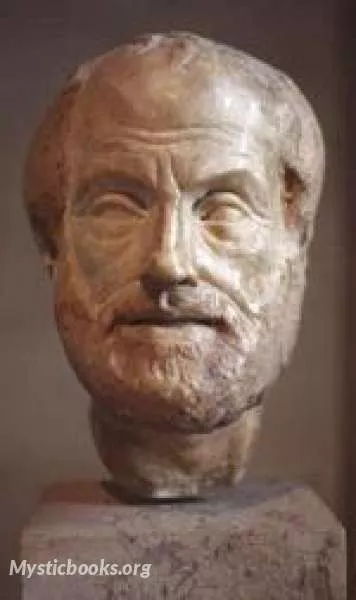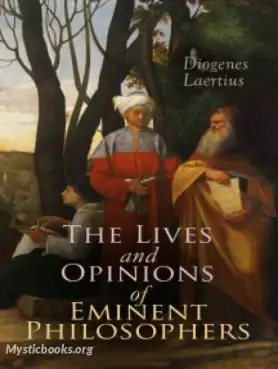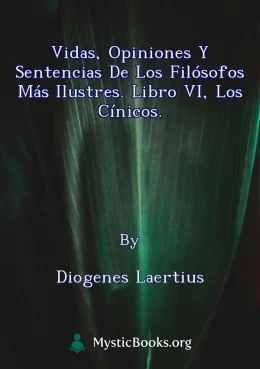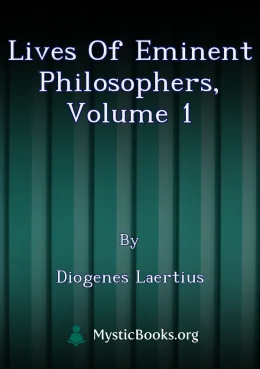
Timeline
Title
Country/Nationality
Diogenes Laertius
Diogenes Laërtius was a biographer of the Greek philosophers. Nothing is definitively known about his life, but his surviving Lives and Opinions of Eminent Philosophers is a principal source for the history of ancient Greek philosophy. His reputation is controversial among scholars because he often repeats information from his sources without critically evaluating it. He also frequently focuses on trivial or insignificant details of his subjects' lives while ignoring important details of their philosophical teachings and he sometimes fails to distinguish between earlier and later teachings of specific philosophical schools. However, unlike many other ancient secondary sources, Diogenes Laërtius generally reports philosophical teachings without attempting to reinterpret or expand on them, which means his accounts are often closer to the primary sources. Due to the loss of so many of the primary sources on which Diogenes relied, his work has become the foremost surviving source on the history of Greek philosophy.
Laërtius must have lived after Sextus Empiricus (c. 200), whom he mentions, and before Stephanus of Byzantium and Sopater of Apamea (c. 500), who quote him. His work makes no mention of Neoplatonism, even though it is addressed to a woman who was "an enthusiastic Platonist". Hence he is assumed to have flourished in the first half of the 3rd century, during the reign of Alexander Severus (222–235) and his successors.
The precise form of his name is uncertain. The ancient manuscripts invariably refer to a "Laertius Diogenes", and this form of the name is repeated by Sopater and the Suda. The modern form "Diogenes Laertius" is much rarer, used by Stephanus of Byzantium, and in a lemma to the Greek Anthology. He is also referred to as "Laertes" or simply "Diogenes".
The origin of the name "Laertius" is also uncertain. Stephanus of Byzantium refers to him as "Διογένης ὁ Λαερτιεύς" (Diogenes ho Laertieus), implying that he was the native of some town, perhaps the Laerte in Caria (or another Laerte in Cilicia). Another suggestion is that one of his ancestors had for a patron a member of the Roman family of the Laërtii. The prevailing modern theory is that "Laertius" is a nickname (derived from the Homeric epithet Diogenes Laertiade, used in addressing Odysseus) used to distinguish him from the many other people called Diogenes in the ancient world.
His home town is unknown (at best uncertain, even according to a hypothesis that Laertius refers to his origin). A disputed passage in his writings has been used to suggest that it was Nicaea in Bithynia.
It has been suggested that Diogenes was an Epicurean or a Pyrrhonist. He passionately defends Epicurus in Book 10, which is of high quality and contains three long letters attributed to Epicurus explaining Epicurean doctrines. He is impartial to all schools, in the manner of the Pyrrhonists, and he carries the succession of Pyrrhonism further than that of the other schools. At one point, he even seems to refer to the Pyrrhonists as "our school." On the other hand, most of these points can be explained by the way he uncritically copies from his sources. It is by no means certain that he adhered to any school, and he is usually more attentive to biographical details.
In addition to the Lives, Diogenes was the author of a work in verse on famous men, in various metres, which he called Epigrammata or Pammetros (Πάμμετρος).
Books by Diogenes Laertius

The Lives and Opinions of Eminent Philosophers, Book VI
There are 10 divisions in this title. This project is a recording of book 6. There is a number of interesting anecdotes on the lives of Antisthenes, Diogenes of Sinope, Monimus, Onesicritus, Crates of Thebes, Metrocles, Hipparchia, Menippus and Mened...

Vidas, opiniones y sentencias de los filósofos más ilustres. Libro VI, Los cínicos.
This book is a collection of biographies and anecdotes about the Cynic philosophers, a group of ancient Greek philosophers who rejected conventional societal norms and values. The Cynics were known for their provocative critiques of institutions and...

Lives of Eminent Philosophers, Volume 1
Diogenes Laertius' *Lives of Eminent Philosophers* is a comprehensive biographical and philosophical work that explores the lives and teachings of major figures in ancient Greek thought. Covering a wide range of philosophical schools, including the S...

Lives of Eminent Philosophers, Volume 2
Diogenes Laertius' Lives of Eminent Philosophers provides a wealth of information about the lives and teachings of ancient Greek thinkers. Despite the varying reliability of Laertius' accounts, his book has become a principal source for the history o...